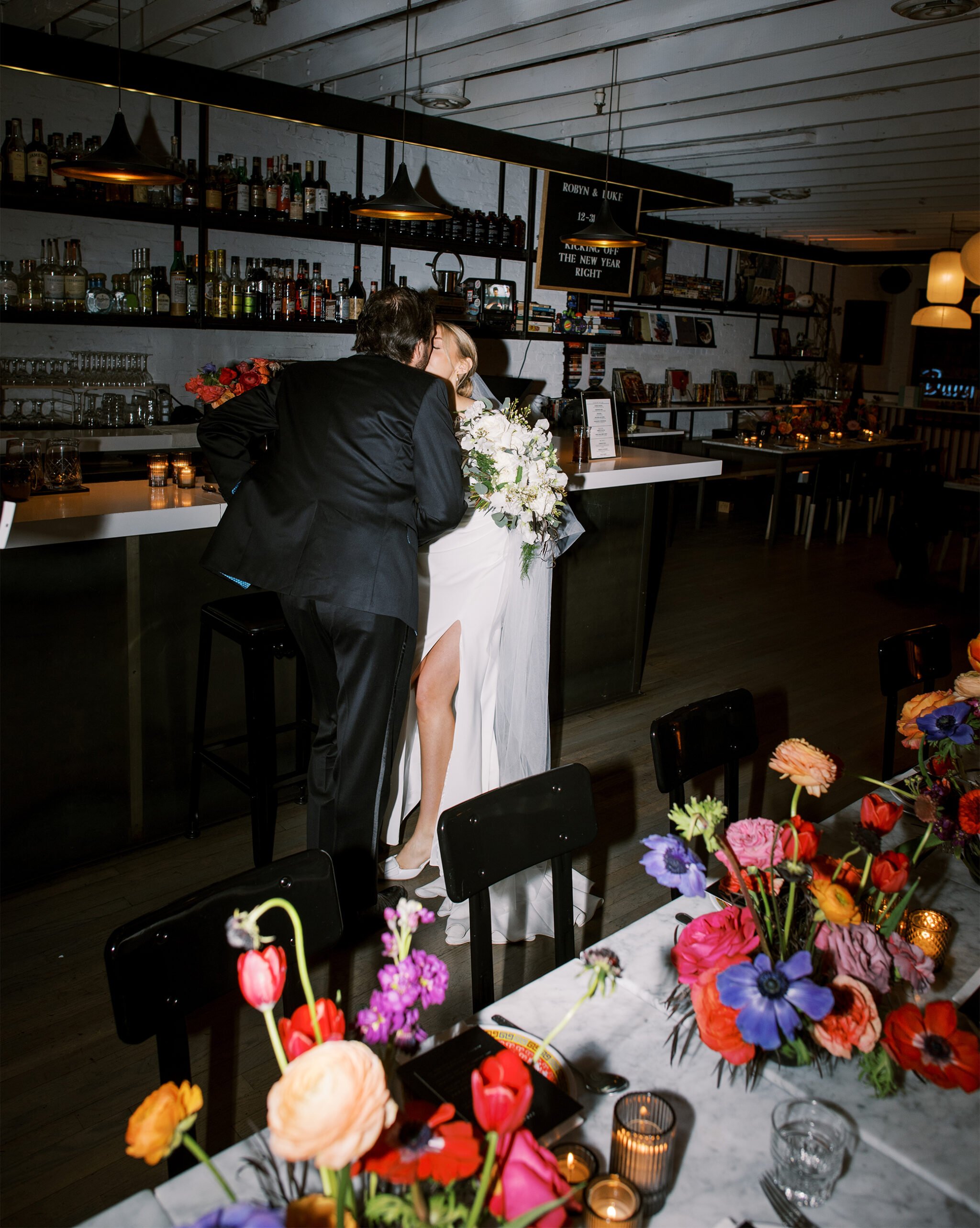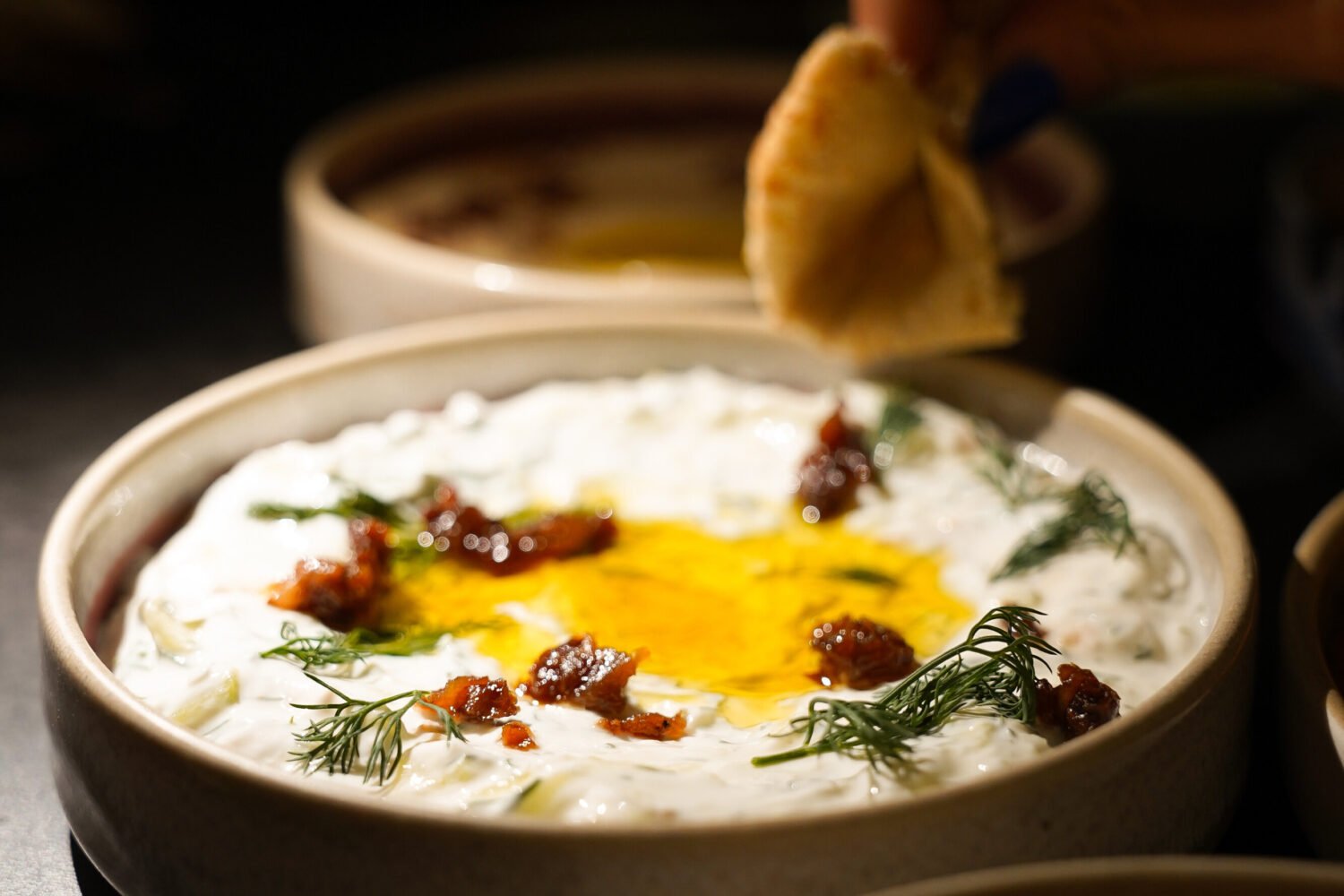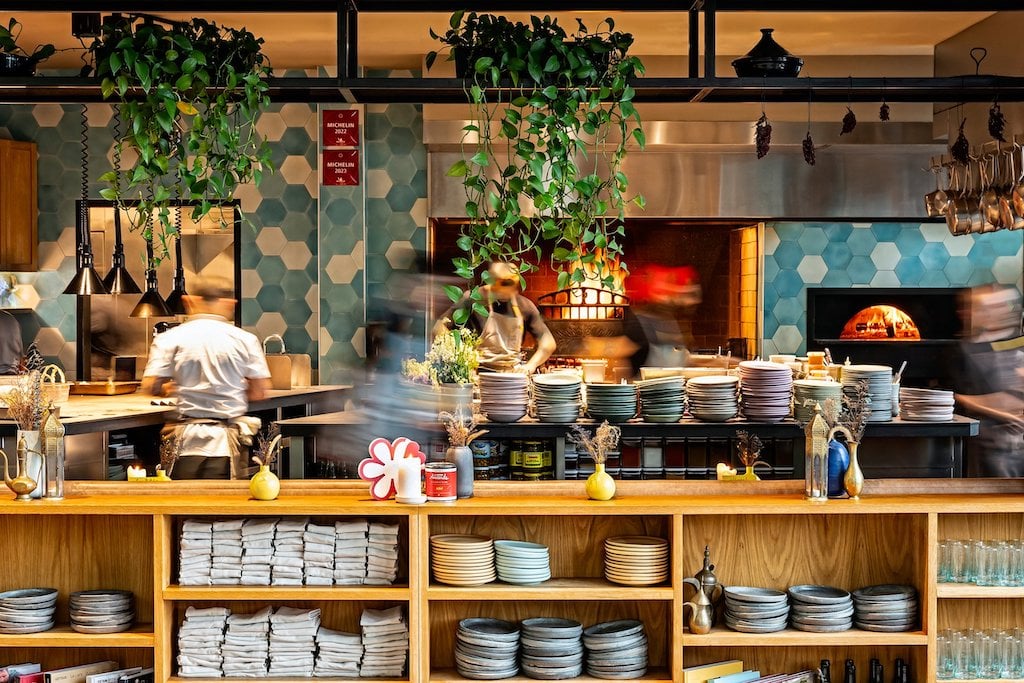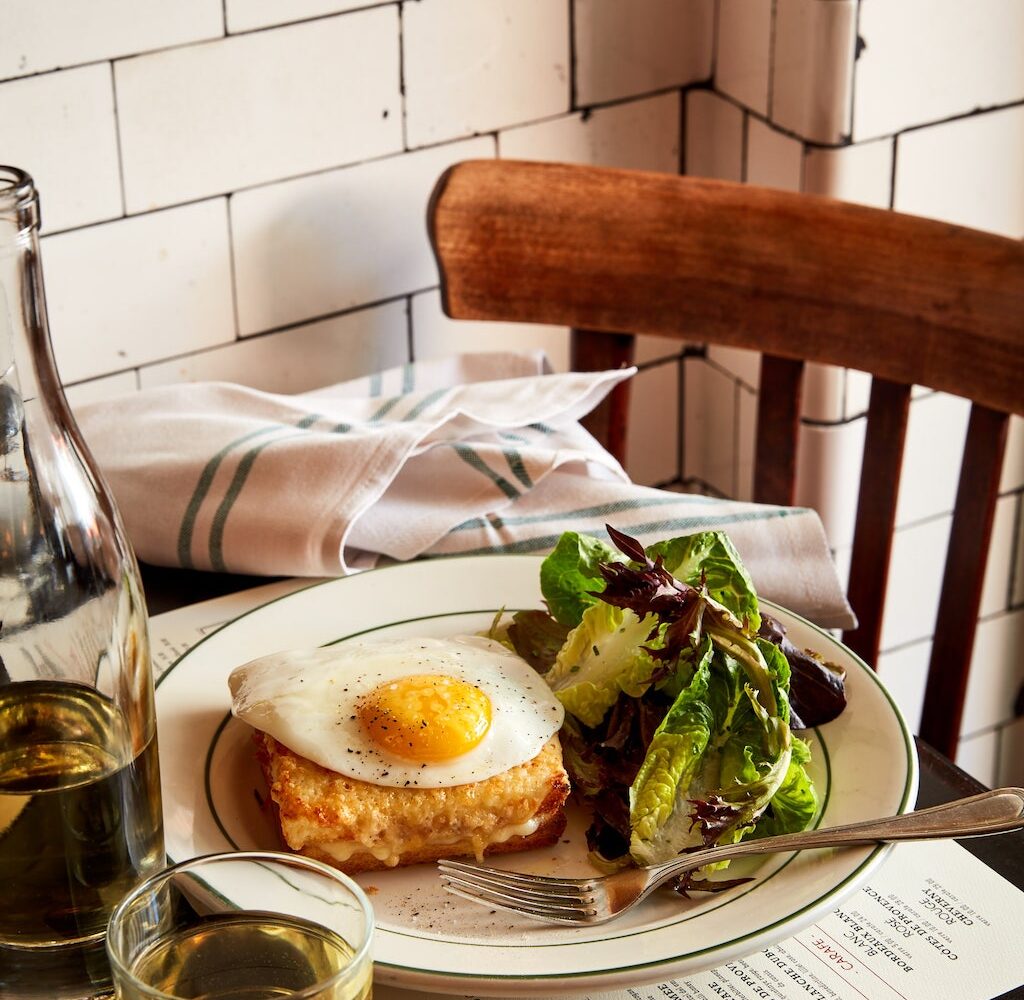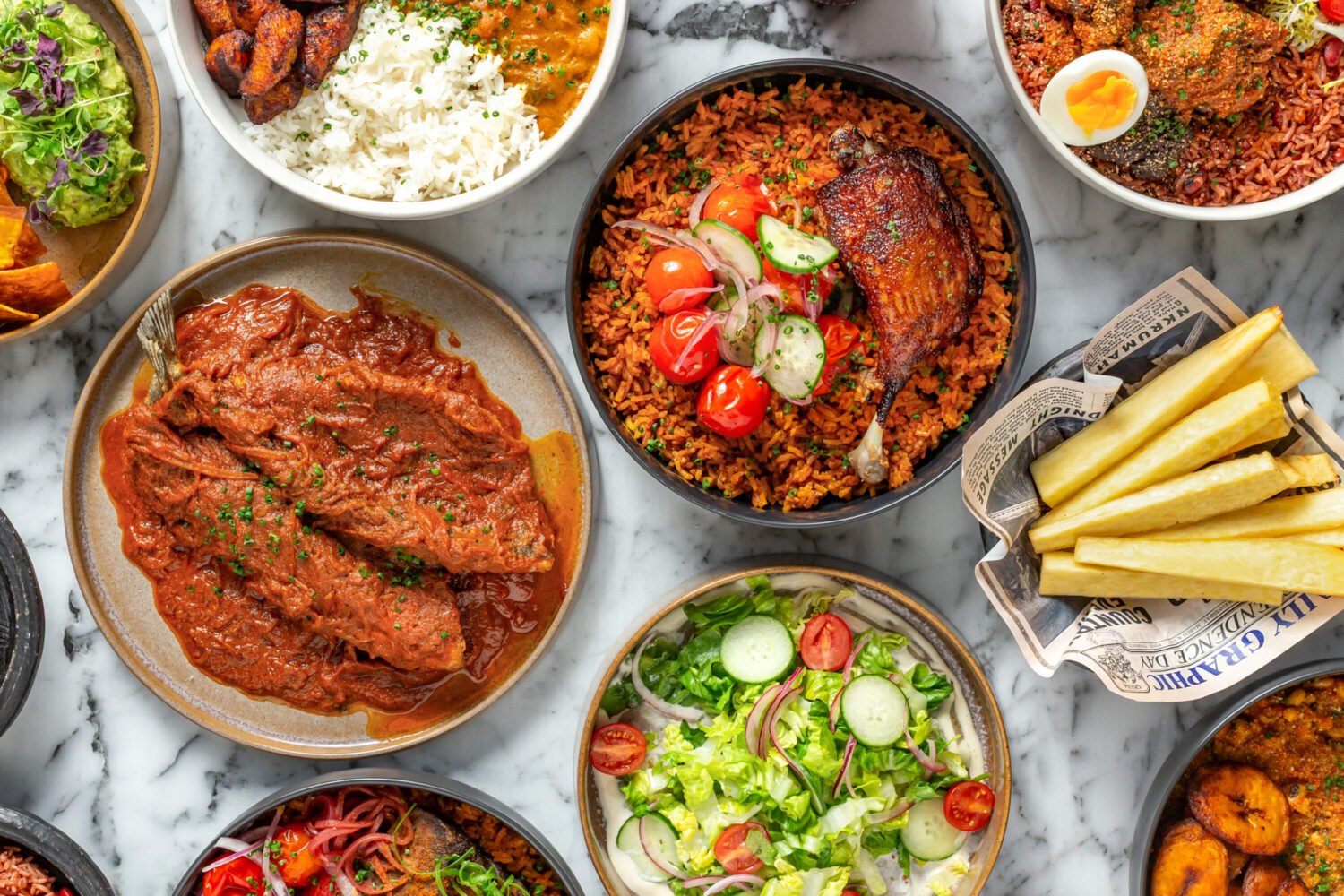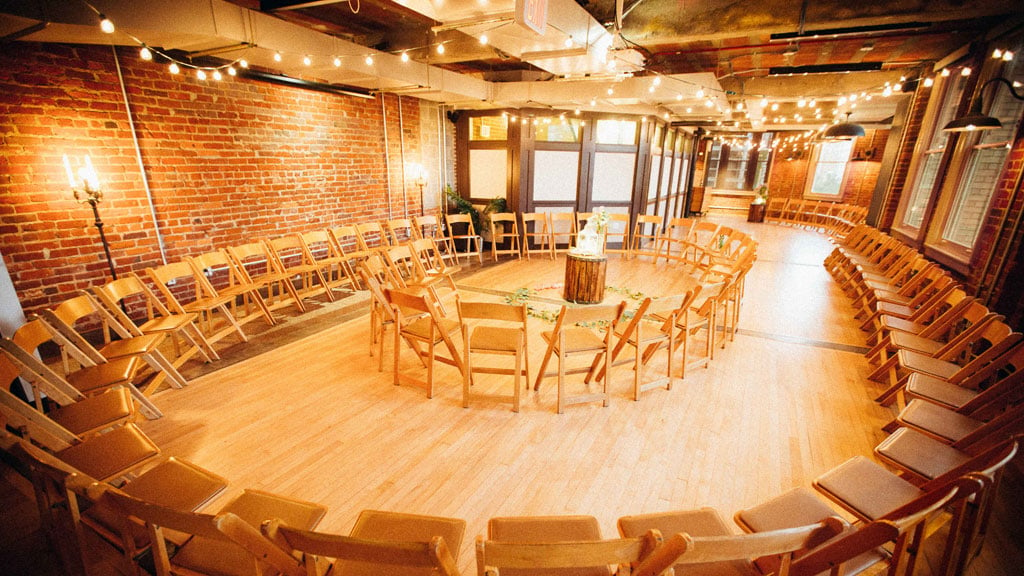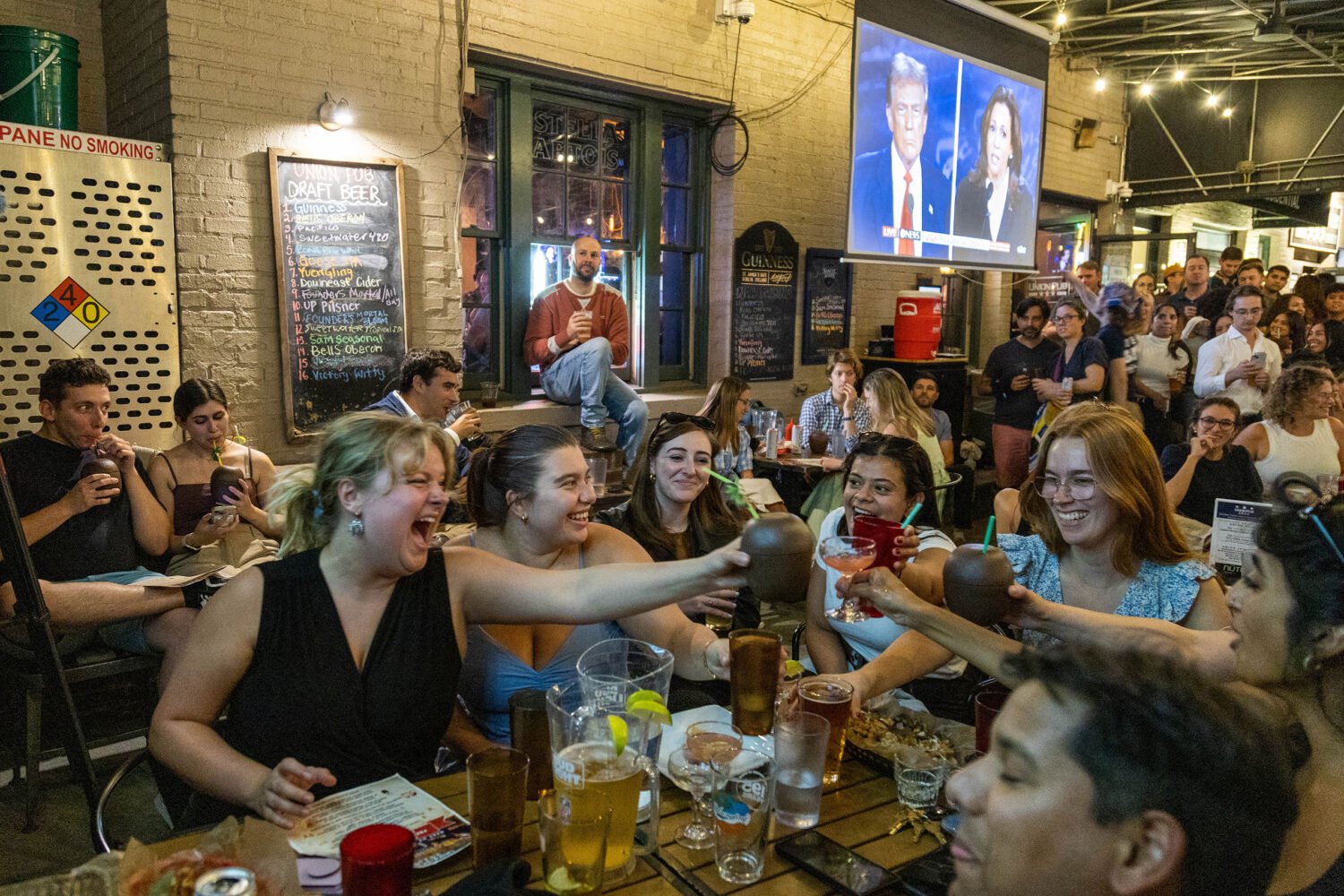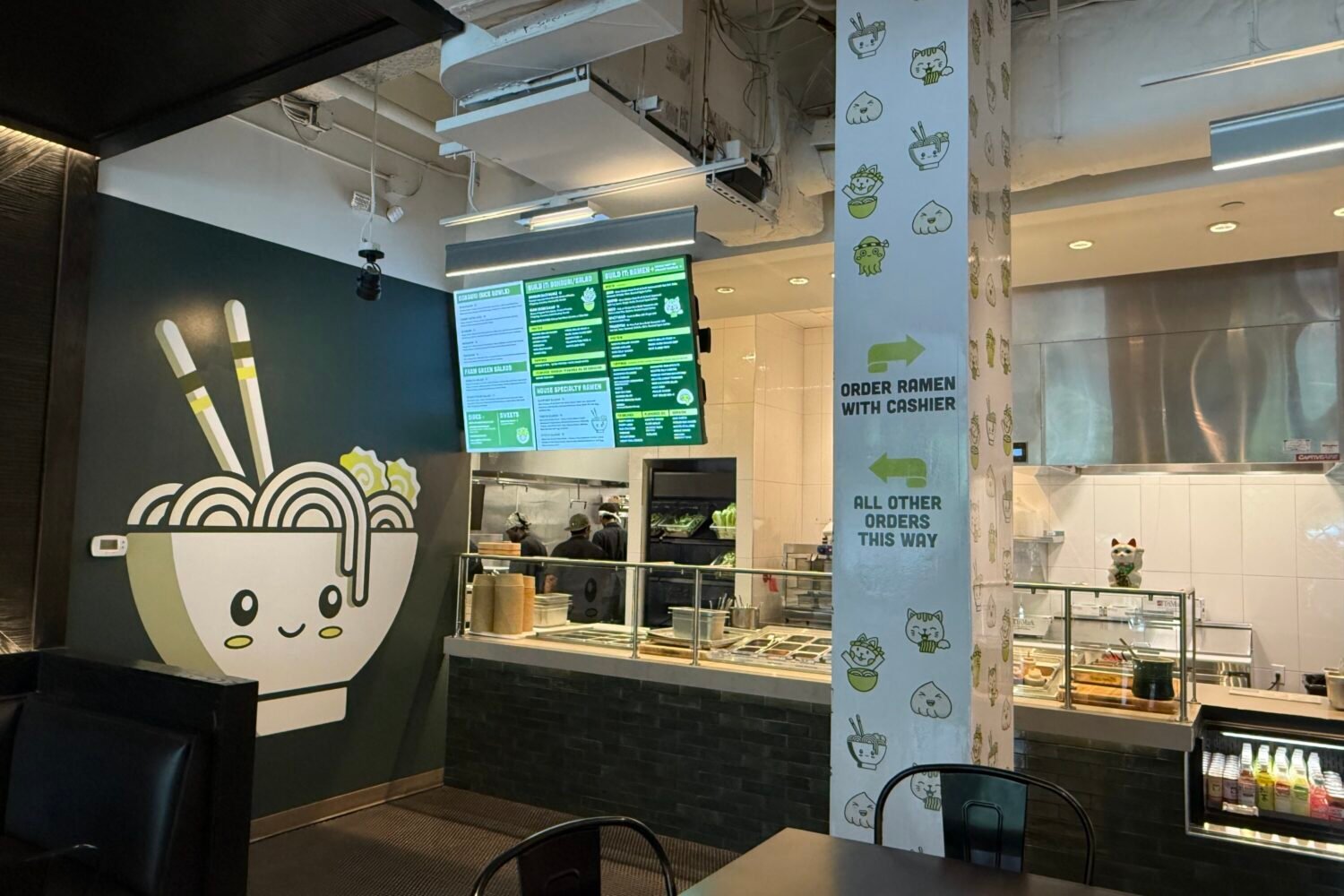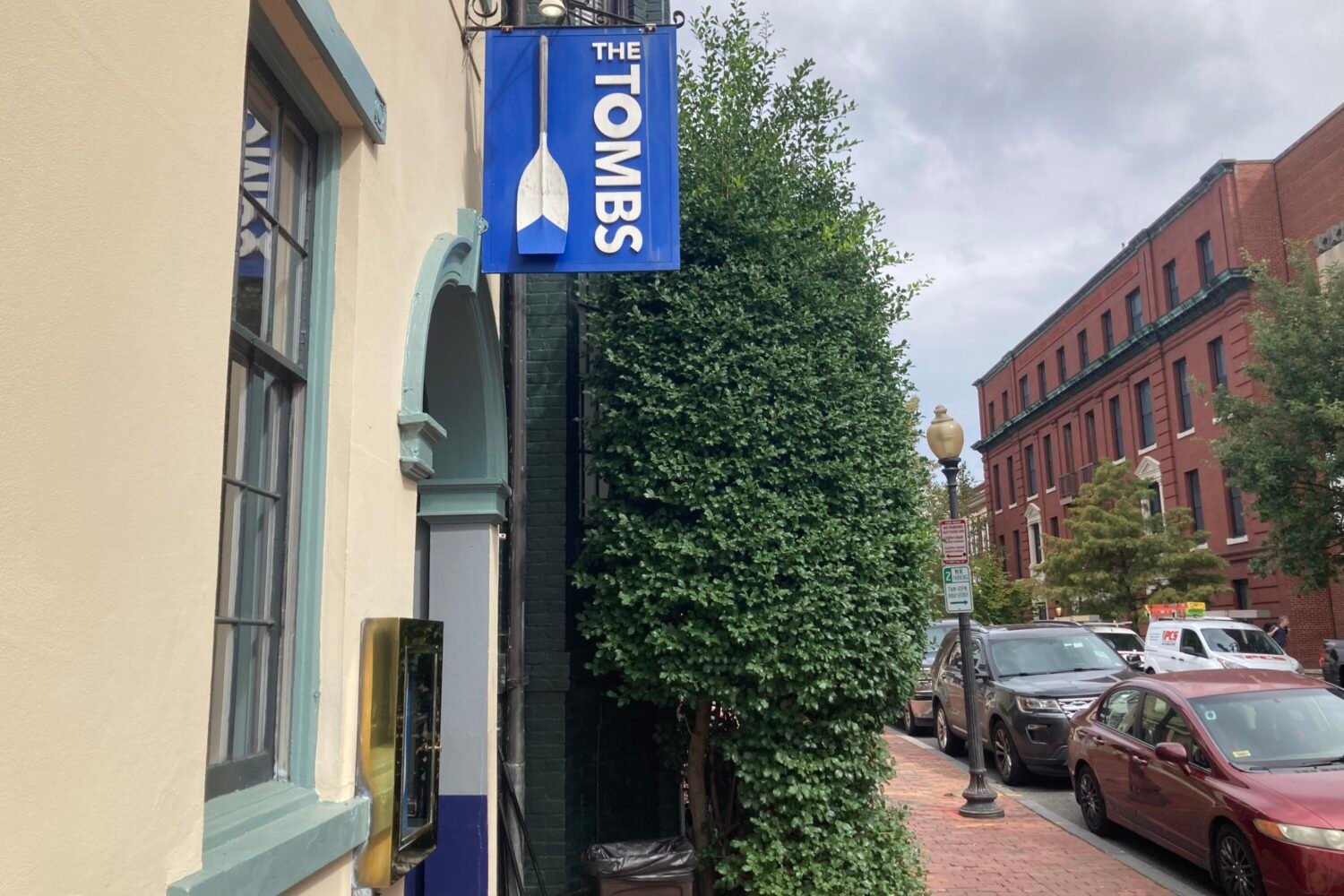Romantic yet practical, hosting a wedding in a restaurant is an increasingly popular idea. Often, couples consider restaurants over more traditional venues for sentimental reasons: It’s where they first met, or their table for two on date night. For others, it’s the intimacy of the dining room that suits their style. In some cases, it’s the hope that a one-stop shop will peel away layers of stress from wedding planning. Before you book your most important reservation yet, here are some things to consider.
1. The menu
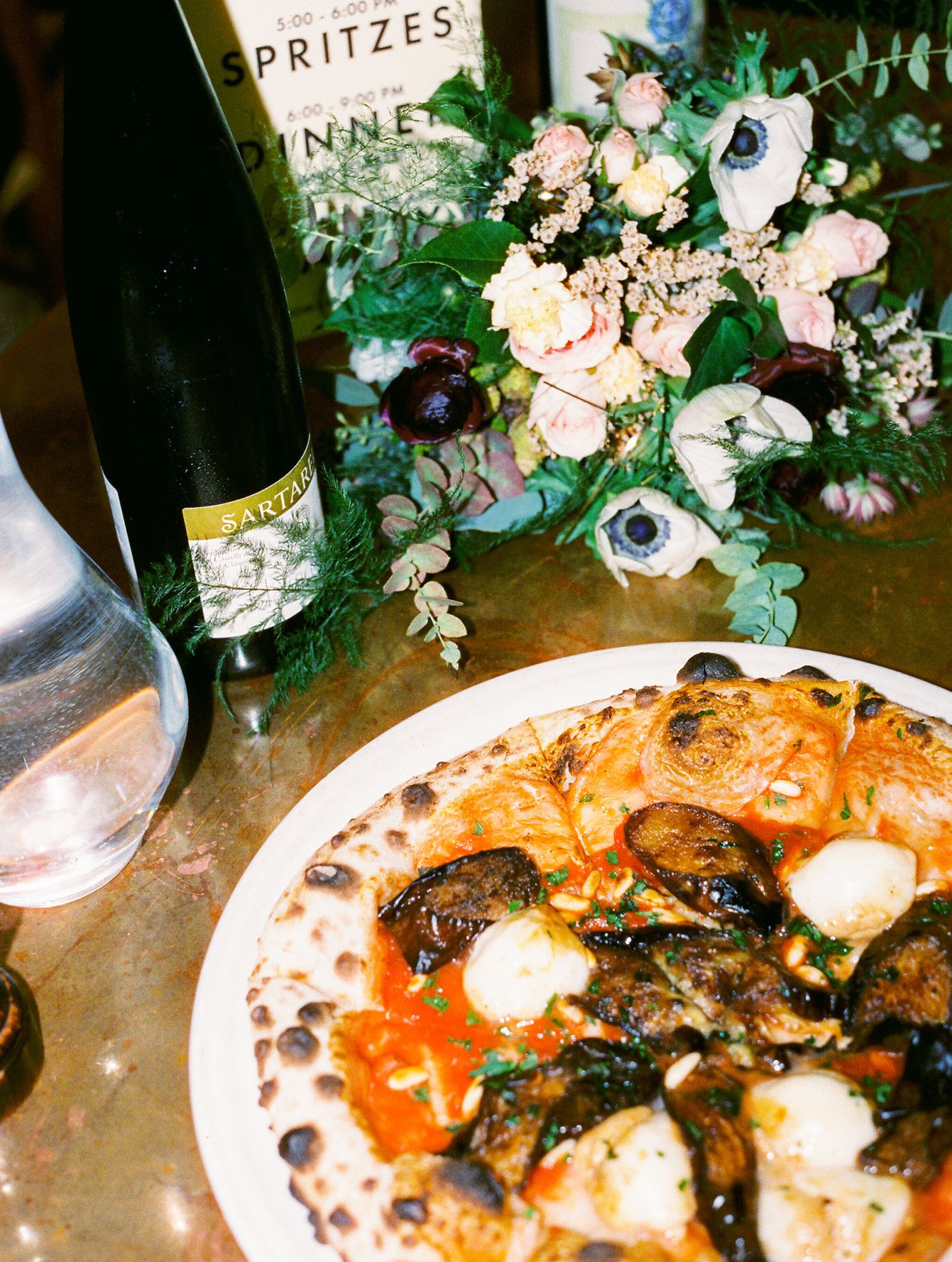
Restaurants that host weddings are pros at delivering food and service, so you can count on high quality. A big plus is selecting options you know and love, though many places will customize the food for a private event. At nautical-chic Ruse in Maryland’s Talbot County, for example, couples craft menus directly with a James Beard Award–nominated chef.
2. The out-of-the-box setting
“Most of my clients that get married in restaurants want something that feels a little unexpected,” says planner Sara Bauleke of Bella Notte. “Restaurants have the benefit of great food and an established vibe, and tend to encourage a bit different flow from a traditional wedding.” At Maketto in Northeast DC, for instance, the display wall designed for sneakers is part of the unique, customizable backdrop, and at Baby Shank, a French restaurant with a lush rooftop, couples can exchange vows overlooking the buzzy U Street corridor. An advantage of entertaining in a restaurant is that personalized decor, including dance floors, bars, draping, elaborate table settings, and more can be kept to a minimum. A restaurant wedding typically is less about transformational design than it is about sharing a beloved place with guests, and couples rarely go for the kind of custom build-outs, showstopping installations, and oversize centerpieces that are common for ballroom, museum, warehouse, and tent weddings.
3. The wide-ranging costs
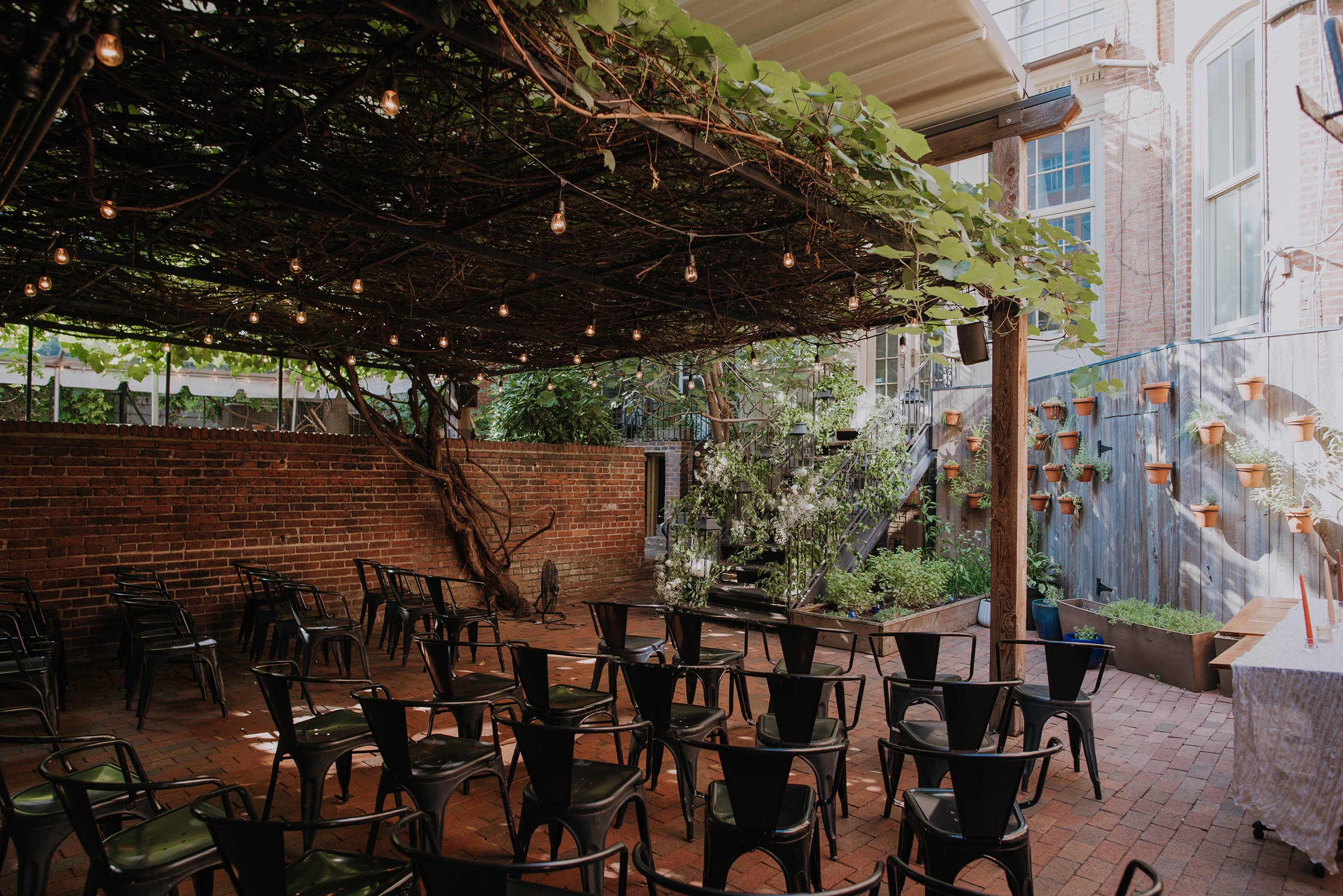
In Washington, where wedding budgets of $75,000 to $125,000—and up—are common, restaurant events can be on the less expensive side, particularly if you choose to lean into the venue’s aesthetic, using the onsite furniture, silverware, linens, and so on. At Ruse, a restaurant buyout requires a minimum of $18,500 in food and drinks, plus taxes and service fees. At the Cooper Mill on Alexandria’s waterfront, Sunday weddings start at $2,000 for the space, plus a food-and-beverage minimum of $7,000. (Reserving a Saturday night costs more.) Wedding buyouts at Maketto typically range from $5,000 to $30,000, plus tax and service charges. Outdoor weddings at Iron Gate in Dupont Circle include the garden patio and side courtyard and start at $18,000 (including taxes and fees) for weekend dates. “Also, by their nature,” says Bauleke, “[restaurants] limit the size of weddings, which helps keep costs down.” (Capacity, of course, is an important consideration.) But while reserving a restaurant can be a budget-friendly choice, Bauleke cautions that implementing a high-end design at an expensive place could easily run six figures. And although the cost of the buyout covers a lot, couples still need to budget for additional line items and vendors: photography, event planner, attire, entertainment, flowers, stationery, and the like.
4. Availability
Weekend receptions at traditional venues can book out as much as two years in advance, but restaurants tend to have buyout availability on shorter notice. If you have a very short timeline, you may be able to score your spot with as little as one or two months’ notice—especially if you’re open to a Sunday brunch or Thursday evening.
Romantic yet practical, hosting a wedding in a restaurant is an increasingly popular idea. Often, couples consider restaurants over more traditional venues for sentimental reasons: It’s where they first met, or their table for two on date night. For others, it’s the intimacy of the dining room that suits their style. In some cases, it’s the hope that a one-stop shop will peel away layers of stress from wedding planning. Before you book your most important reservation yet, here are some things to consider.
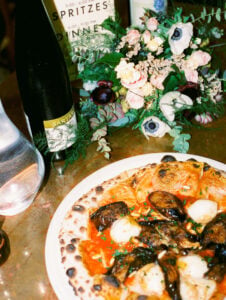
1. The menu
Restaurants that host weddings are pros at delivering food and service, so you can count on high quality. A big plus is selecting options you know and love, though many places will customize the food for a private event. At nautical-chic Ruse in Maryland’s Talbot County, for example, couples craft menus directly with a James Beard Award–nominated chef.
2. The out-of-the-box setting
“Most of my clients that get married in restaurants want something that feels a little unexpected,” says planner Sara Bauleke of Bella Notte. “Restaurants have the benefit of great food and an established vibe, and tend to encourage a bit different flow from a traditional wedding.” At Maketto in Northeast DC, for instance, the display wall designed for sneakers is part of the unique, customizable backdrop, and at Baby Shank, a French restaurant with a lush rooftop, couples can exchange vows overlooking the buzzy U Street corridor. An advantage of entertaining in a restaurant is that personalized decor, including dance floors, bars, draping, elaborate table settings, and more can be kept to a minimum. A restaurant wedding typically is less about transformational design than it is about sharing a beloved place with guests, and couples rarely go for the kind of custom build-outs, showstopping installations, and oversize centerpieces that are common for ballroom, museum, warehouse, and tent weddings.
3. The wide-ranging costs

In Washington, where wedding budgets of $75,000 to $125,000—and up—are common, restaurant events can be on the less expensive side, particularly if you choose to lean into the venue’s aesthetic, using the onsite furniture, silverware, linens, and so on. At Ruse, a restaurant buyout requires a minimum of $18,500 in food and drinks, plus taxes and service fees. At the Cooper Mill on Alexandria’s waterfront, Sunday weddings start at $2,000 for the space, plus a food-and-beverage minimum of $7,000. (Reserving a Saturday night costs more.) Wedding buyouts at Maketto typically range from $5,000 to $30,000, plus tax and service charges. Outdoor weddings at Iron Gate in Dupont Circle include the garden patio and side courtyard and start at $18,000 (including taxes and fees) for weekend dates. “Also, by their nature,” says Bauleke, “[restaurants] limit the size of weddings, which helps keep costs down.” (Capacity, of course, is an important consideration.) But while reserving a restaurant can be a budget-friendly choice, Bauleke cautions that implementing a high-end design at an expensive place could easily run six figures. And although the cost of the buyout covers a lot, couples still need to budget for additional line items and vendors: photography, event planner, attire, entertainment, flowers, stationery, and the like.
4. Availability
Weekend receptions at traditional venues can book out as much as two years in advance, but restaurants tend to have buyout availability on shorter notice. If you have a very short timeline, you may be able to score your spot with as little as one or two months’ notice—especially if you’re open to a Sunday brunch or Thursday evening.
This article appears in the August 2025 issue of Washingtonian.

